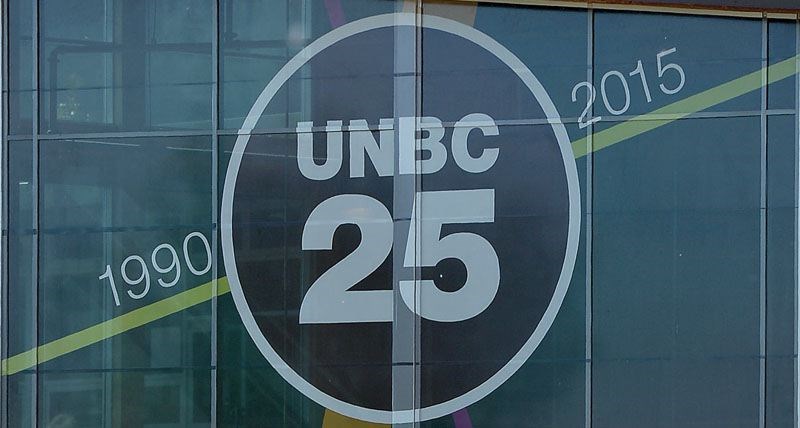Class is in session today for the first time in two weeks after UNBC administration called in the Labour Relations Board to suspend the faculty strike and bring back mediation.
Jacqueline Holler, faculty association president, said the union is preparing its submission to the mediator, who must be selected within five days. The mediator then has 20 days to work with the two sides.
"We're very resolved in this job action that was taken after much deliberation and a lot of soul searching," Holler said. "I think it's fair to say that we were disappointed that UNBC saw fit to go to this process rather than resolving this at the table."
Picket lines were down Thursday after the late Wednesday night announcement by university president Daniel Weeks.
"It has become increasingly clear that the faculty association strike is having a significant impact on our students' lives and the entire UNBC community," said Weeks in the online statement.
The option can be invoked by either side involved in a first collective agreement. If after the 20 days of mediation neither side agrees to the suggestion, then the board's appointed chair has one of three options: further mediation, binding arbitration, or permitting sides to return to strike or lock out.
While the mediator's recommendations are not binding, if the LRB chair directs them into further mediation or binding arbitration, then the union is prevented from striking.
"This process really re-situates the power in the collective bargaining process back in the hands of the labour board," Holler said. "They're in the driver's seat now."
Holler said the faculty would be open to binding arbitration while Rob Van Adrichem, vice president or UNBC external relations, said it was too early in the process to discuss.
He wouldn't speculate on what the LRB mediator could offer that the previous mediator couldn't and said the labour board could best speak to its process.
Holler, meanwhile, said she would have preferred the two sides negotiate a settlement.
"We've been through over 30 days of mediation, we've spent hundreds and hundreds of hours of this process so it's really difficult to know what more mediation is going to bring to the process."
When news came in late Wednesday night, the students in midst of a 24-hour sit-in at UNBC's administration buildings packed up and went home.
"We felt like our concerns were addressed and this was a step in a positive direction," said Linda Horianopoulos, one of the event organizers. "I think that it is a step in the right direction and it's sort of like a temporary solution but we're really hoping that it's going to result in something more permanent and something positive."
Horianopoulos said it's a relief to be back in classes but stressed students still need to be involved. A group met Thursday morning about having a table at the university to share information.
"We want to continue hearing about the progress every day. We're really going to be pushing for that," she said.
"It's not over."
The last day of classes is scheduled for April 17 and the exam period is April 20 to 30. Van Adrichem did not know if the university was considering an extension for the time lost to strike but said the Senate, which next meets on Wednesday, typically decides such dates.



